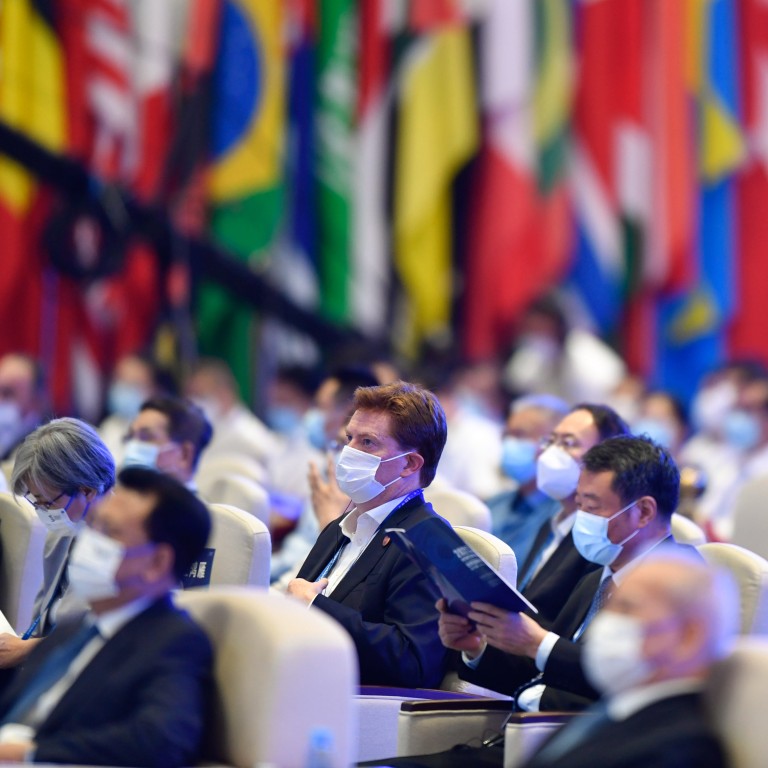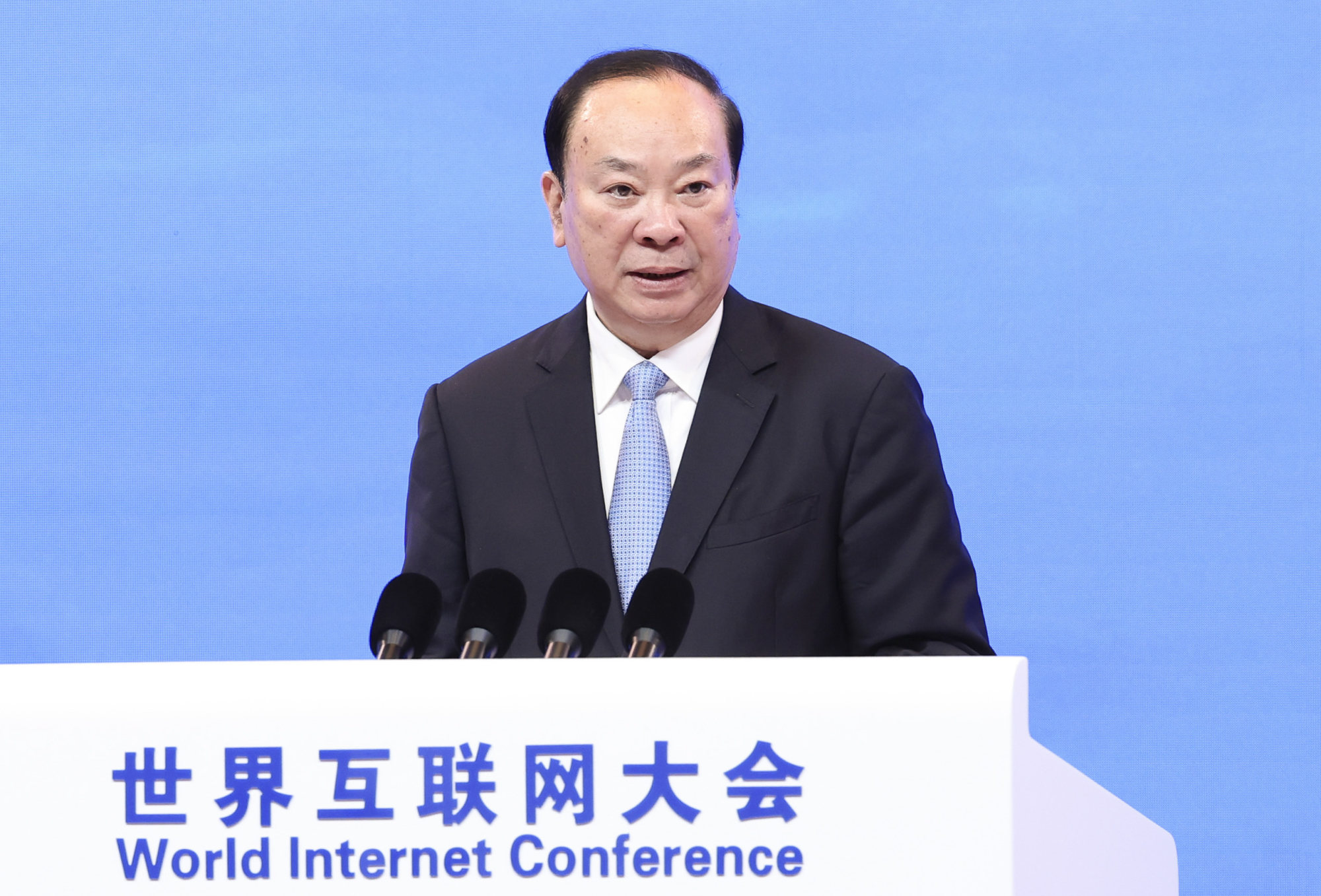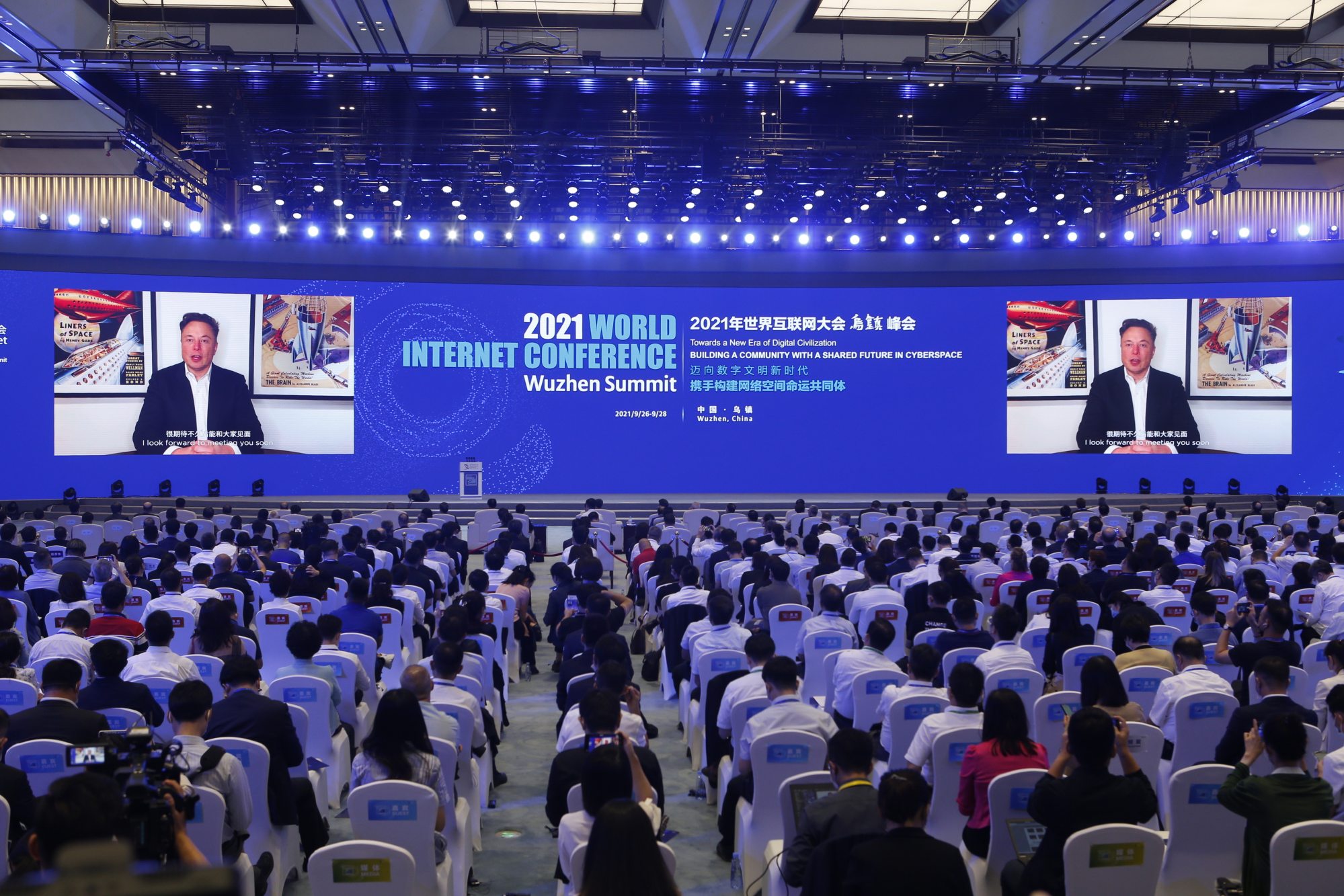
China’s World Internet Conference goes ‘international’ as Beijing seeks to promote its own vision of global cyberspace
- Xinhua news agency reported that founding members include ‘institutions, organisations, businesses and individuals’ from nearly 20 countries
- The conference in Wuzhen has been relatively low key in recent years as China’s tech entrepreneurs kept a low profile amid regulatory scrutiny
China’s World Internet Conference (WIC), an annual event that promoted the country’s model of internet governance, said it has transformed into an “international organisation” as part of Beijing efforts to push its vision of global cyberspace.
Although WIC did not not publish a list of the founding members of the new body, the official Xinhua news agency reported that they include “institutions, organisations, businesses and individuals” from nearly 20 countries. Zhuang Rongwen, the director of the Cyberspace Administration of China, will be the director-general of the body.
A ceremony was held in Beijing on Tuesday to announce the formation of the organisation, which had hosted the annual event, also known as the Wuzhen Summit, in the picturesque canal town near Shanghai since 2014.
China’s car, internet and property sectors poised for second-half rebound
The new group is expected to host more regional and thematic summits and seminars to promote the development of a global internet, according to a statement on its website.
Chinese President Xi Jinping issued a congratulatory letter, saying its creation was “an important measure to … deepen international cyberspace cooperation”, Xinhua reported. “The future of cyberspace should be jointly built by all countries of the world,” Xi said.

China is known for its rigid control of the internet, with its Great Firewall blocking many foreign services, including Google, Facebook and Twitter, from the country’s domestic users. At the same time, Chinese regulators have clipped the wings of its own Big Tech firms to manage the internet as a tool for state goals.

“WIC has been about promoting China’s vision of global internet governance from the get-go, but it is presented with an emphasis on collaboration and exchange,” said Thomas Nunlist, senior analyst at Trivium China. The new organisation is likely to try and bring countries more into China’s orbit, and make declarations that further push Beijing’s model for the internet, Nunlist said.

